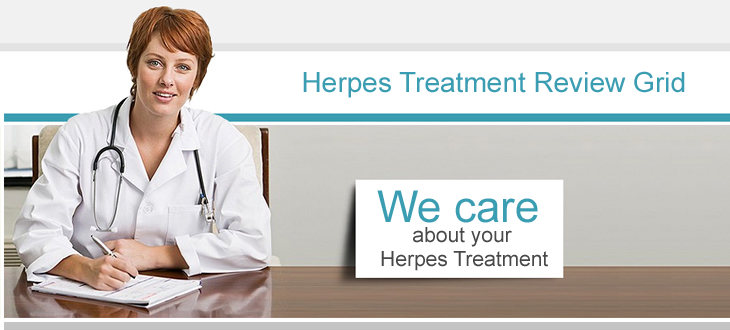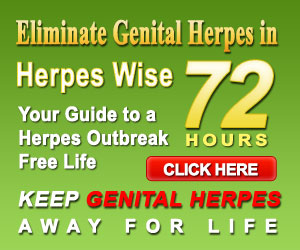About Herpes Suppressive Therapy
August 23, 2010 by Joanna
Filed under Genital Herpes Tips
Choosing the right therapy for Herpes Simplex Virus depends on the site of the herpes infection and whether the attack is primary or recurrent. To be effective against recurrent Herpes Simplex Virus infection, treatment of herpes must be initiated in the first week of a primary herpes infection. Later herpes treatment has limited effect in preventing recurrent herpes infection.
Genital herpes is usually caused by Herpes Simplex Virus 2, but the percentage of genital Herpes Simplex Virus-1 case are rising, and new Herpes Simplex Virus 1 genital cases now equal or exceed those caused by Herpes Simplex Virus 2. Since there is no difference in herpes treatment, however, differentiating between genital herpes infections caused by Herpes Simplex Virus-1 or Herpes Simplex Virus-2 has little practical value.
Even if you don’t ever have herpes outbreaks, there may be some benefit to using daily suppressive therapy. This is because even people who have never had a herpes outbreak can transmit the herpes simplex virus to their partner.
Some people think they can only transmit herpes to their partner if they have a herpes outbreak, or in the prodromal period immediately before and then again right after a herpes outbreak. They’re wrong. Genital herpes can be transmitted at any time which is why some individuals who have many sexual partners or whose partners are not infected with the herpes simplex virus may decide to use suppressive therapy against the Herpes Simplex Virus even though they do not have any herpes symptoms.
 Although herpes can be transmitted at any time, people with herpes are not equally infectious at all times. In general, a person is most infectious during a herpes outbreak, in the period immediately before and after a herpes outbreak, and in the first year after he is infected, but he still can transmit the herpes simplex virus at other times. Furthermore, some people don’t recognize when they are having a herpes outbreak. One study of 53 individuals who tested positive for genital herpes, but who had said they did not actually have herpes outbreaks, found that half them actually were having herpes outbreaks but didn’t realize it. However, even with that complication aside, six out of seven of the individuals who had no signs of clinical herpes were still found to be shedding herpes simplex virus.
Although herpes can be transmitted at any time, people with herpes are not equally infectious at all times. In general, a person is most infectious during a herpes outbreak, in the period immediately before and after a herpes outbreak, and in the first year after he is infected, but he still can transmit the herpes simplex virus at other times. Furthermore, some people don’t recognize when they are having a herpes outbreak. One study of 53 individuals who tested positive for genital herpes, but who had said they did not actually have herpes outbreaks, found that half them actually were having herpes outbreaks but didn’t realize it. However, even with that complication aside, six out of seven of the individuals who had no signs of clinical herpes were still found to be shedding herpes simplex virus.
Unfortunately, many patients and many physicians, are unaware of both the risk of asymptomatic herpes transmission and how effective herpes suppressive treatment can be in preventing it. If you are living with herpes and have one or more uninfected sexual partners, consider discussing the possible advantages of daily herpes suppressive therapy with your doctor. Condoms aren’t 100% effective at preventing the spread of herpes simplex virus, since it is transmitted from skin to skin. So remind him, or her, that 70% of new herpes infections are acquired from people who have no herpes symptoms at the time of herpes transmission and that herpes suppressive therapy has been shown to reduce the likelihood of herpes transmission by half or more.
Daily long-term preventive therapy, called herpes suppressive therapy, may be appropriate in certain patients to prevent severe long-lasting herpes recurrences, to reduce the risk of transmitting the herpes virus, and to improve quality of life. Acyclovir is the standard agent, but famciclovir and valacyclovir are also effective. In some studies, herpes suppressive therapy using acyclovir has reduced the frequency of herpes recurrence in 80% of patients and prevented herpes recurrence altogether in up to 30%. In one study of famciclovir, after a year, up to 80% of patients had no herpes recurrences. In others trials using valacyclovir, patients preferred herpes suppressive therapy and it was more effective than intermittent treatment.
If a herpes infection occurs during herpes suppressive therapy, healing time is quicker and symptoms of herpes are less severe. Herpes suppressive therapy may also reduce the risk for development of drug-resistant viruses compared to intermittent treatments.
Once the herpes disease is under control, some physicians gradually decrease the dose of the drug used in herpes suppressive therapy. In general, people stop taking herpes suppressive therapy after about two years. Some, however, stay on this herpes therapy for many more years. The suppressive therapy herpes treatment is expensive. And, since the frequency of herpes recurrences diminishes over time without herpes suppressive therapy, lifelong use of drugs is not generally recommended. Some experts warn, however, that unless herpes suppressive therapy becomes widespread and prolonged, transmission of the herpes simplex virus will remain a major health problem and the prevalence of Herpes Simplex Virus-2 infection will not significantly decrease.



